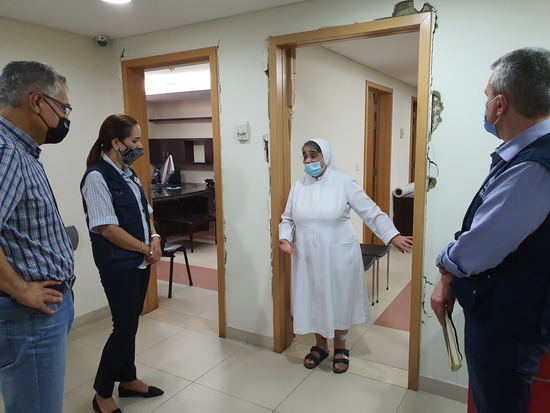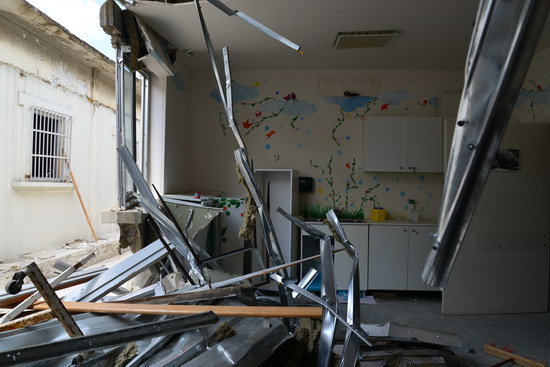“It was the end of the world,” she sobbed.

Before the blast, the Rosary Sisters Hospital provided both laboratory and medical services, as well as specialized services are for ophthalmology, breast cancer, oncology, and obstetrics and gynaecology. They also housed one of the few neonatal intensive care units in the country, which is now destroyed. A new PCR testing laboratory for COVID-19, established just one week before the blast that was testing more than 1000 people per day, was also destroyed.

Less than a week after the blast, WHO supported a rapid structural assessment of the hospital, which found 80% of the hospital to be severely damaged. The cost of rebuilding the hospital is estimated at almost US$ 6 million, not including the cost of medical equipment which still needs to be tested and may need to be replaced.
Initial plans are to repair one or two floors over the coming weeks and months so that the facility can resume partial functionality, including the emergency unit, laboratory and scanning units, and a number of clinical departments.
“15 years of work were demolished in one night. I am worried about the staff, and how I will maintain their livelihoods now that the hospital is out of service. We have 150 health workers here, and I refuse to let any of them go,” said Sister Akiki.
“We went through this tragedy together with the rest of the community and faced our darkest hours. But I have faith in my heart, faith in my country, and hope. We will get back on our feet again so that we can serve our people. We have not abandoned them.”
Related link
Lebanon press briefing statement
12 August 2020


